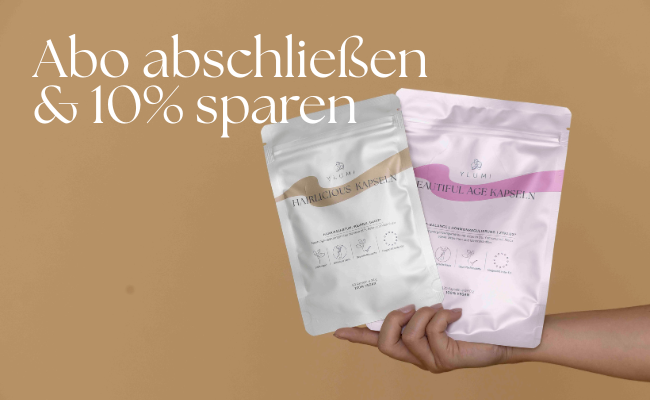
Cortisol: How to balance your stress hormone
Cortisol – a hormone closely linked to our well-being. But what does it really mean for your body? In this blog post, you'll learn how cortisol affects your health, how you can naturally balance it, and which daily routines can help.
What is cortisol and why is it important?
Cortisol is a hormone produced in the adrenal cortex that plays a key role in metabolism, the immune system, and stress response. It helps your body cope with challenges by regulating blood sugar levels, maintaining stable blood pressure, and reducing inflammation.
However, chronically high cortisol levels – triggered by persistent stress, unhealthy diet or lack of sleep – can have negative effects, such as:
- Weight gain, especially in the abdomen
- Sleep disorders
- Exhaustion and mood swings
- Weakening of the immune system
- Concentration problems
What helps to lower cortisol?
Fortunately, you can regulate your cortisol levels with targeted routines and thus ensure greater well-being. Here are some proven methods:
1. Integrate relaxation techniques into your everyday life
- Breathing exercises: Deep abdominal breathing can lower cortisol levels within minutes.
- Meditation & Mindfulness: Regular meditation helps calm the mind and reduce stress.
- Enjoy nature: Walks in the countryside have been proven to reduce stress hormone levels.
2. Regular exercise – but in moderation
Exercise is an effective stress reliever, but intense training can also temporarily increase cortisol. Recommended are:
- Moderate exercise such as yoga, Pilates or walking
- Strength training in moderate units
- Adequate recovery after training
3. Good sleep as the key to balance
Poor sleep is one of the biggest stressors for the body. Therefore, pay attention to:
- A fixed sleep routine (e.g. always going to bed at the same time)
- Avoiding blue light in the evening (less mobile phone & laptop)
- Relaxing rituals such as tea or reading
4. The right diet against stress
Certain nutrients and foods help lower cortisol levels naturally:
- Complex carbohydrates (e.g. oatmeal, whole grain products) stabilize blood sugar.
- Omega-3 fatty acids (e.g. from salmon, flaxseed) have an anti-inflammatory effect.
- Dark chocolate (at least 85% cocoa) can reduce cortisol.
- Adaptogenic herbs such as Ashwagandha or Rhodiola support the body in coping with stress.
YLUMI for stress balance
If you would like to support your body with additional high-quality adaptogens, it is worth taking a look at our ENERGY CAPSULES and SLEEP CAPSULES
- ENERGY CAPSULES – with Chlorella, Spirulina, Green Tea and Ginseng to increase performance and energy levels
- SLEEP CAPSULES – with lavender and melatonin for better sleep
Conclusion: Keep cortisol in balance
Cortisol isn't your enemy—it's an important hormone that helps you respond to stressful situations. But in our hectic world, it can easily become unbalanced. With targeted routines, a mindful diet, and natural adaptogens, you can regulate your cortisol levels and improve your well-being.




